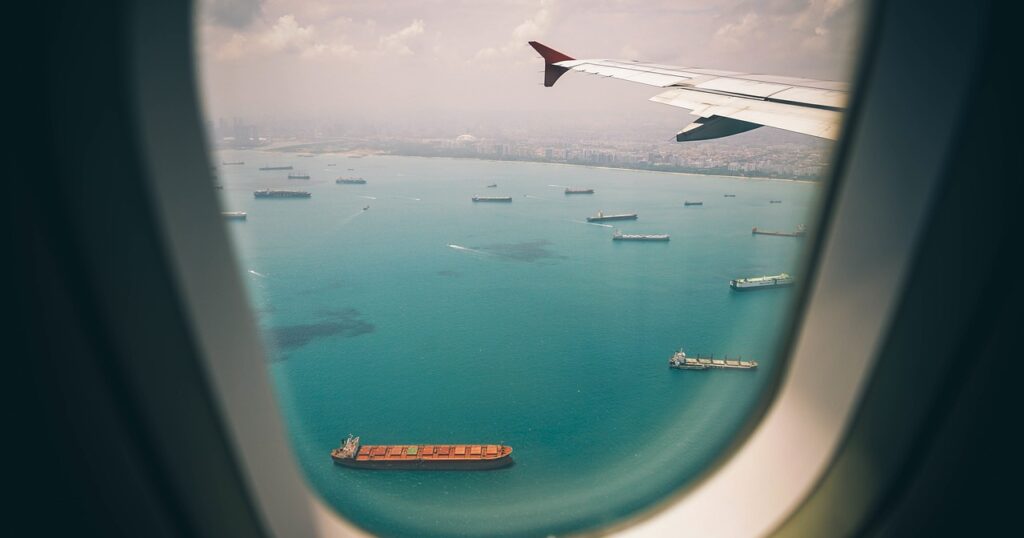

Flying after freediving should be considered carefully. You should plan a suitable waiting period before getting on a plane, depending on the length, depth and number of dives you’ve undertaken. A dive computer with freediving mode may help you to keep track of dissolved nitrogen levels in your bloodstream. Recommended waiting periods vary from 2-24 hours.
You may wish to avoid flying for up to 24 hours after freediving, particularly if you have been participating in long and/or deep multiple dives. Decompression sickness (DCS) is less common in freediving than scuba diving but it can still occur and could be triggered or worsened by flying too soon after freediving. DCS can cause pain, serious injury or death.
The True Story Book of Freediving Champion Audrey Mestre and the Story of Her Death
View on Amazon: The Last Attempt (Opens new tab)


Top rated read
If you’re looking for information on flying after freediving then this article is a good place to start. We look at whether it is safe to fly after freediving, how long you should wait before flying and the risks of flying too soon.
Is it safe to fly after freediving?
It is not safe to fly after freediving, and could be extremely dangerous. Links between decompression sickness (DCS) and freediving are not yet widely accepted or understood despite convincing evidence. However, the US National Institute of Health (NIH) has recorded at least 90 cases of DCS following repeated freedives.
Both NIH and the Divers Alert Network (DAN) recommend that freedivers consider risks around DCS. After multiple deep dives, they advise precautions including:
- long surface recovery periods, at least three to four times the length of your dive,
- limiting daily diving to a combined total depth of 120m (393 feet).
How long after diving can you fly?
There are no absolute rules or exactly defined waiting times before flying after freediving. To play safe, some freedivers follow the same DAN guidance as scuba divers and allow 24 hours (on land at sea level) after diving, before getting on a plane.
Some dive computers have a freediving mode and can track your blood nitrogen build up to give you greater confidence in making decisions about flights.
What happens if you fly too soon after diving?
If you fly too soon after diving, run the risk of developing or worsening DCS, also known as “the bends”, a condition which can cause pain, serious injury, or even death.
Nitrogen makes up 78% of the air we breath, with 21% being oxygen and 1% other gases. At sea level there will be both oxygen and some nitrogen dissolved in your blood. During a diving descent, the greater water pressure causes more of both gases to dissolve. While oxygen is gradually consumed by the body, the nitrogen remains.
A slow diving ascent allows nitrogen to dissolve out of the blood and tissues gradually and safely. A fast ascent reduces pressure too quickly and releases nitrogen gas in bubbles. These bubbles can cause painful blockage of blood vessels in limbs, and could also rupture blood vessels in the lungs or cause a full stroke or heart attack.
DCS might also occur, or be worsened, when you ascend to height (and lower air pressure) in an airplane while nitrogen is still dissolved in your bloodstream. A waiting period before flying allows excess nitrogen to leave your bloodstream.
Can you fly and then dive on the same day?
While DAN recommends a 24 hour waiting period at sea level before flying after scuba diving, there is no expert consensus on exact waiting times before flying for either scuba or freediving. The US Navy recommends two hours and other research indicates a 12-18 hour waiting period.
Research on freediving and flying is still relatively sparse. While it is clear that it is possible to develop DCS through freediving, the risks of getting DCS are difficult to quantify or mitigate.
DCS risk probably relates to the depths and lengths of your freedives, as both of these factors are linked to building up more dissolved nitrogen in the bloodstream. A single short freedive to a moderate depth may require less waiting time before flying than several hours of long and/or deep freediving.
References
https://pubmed.ncbi.nlm.nih.gov/16967769/
